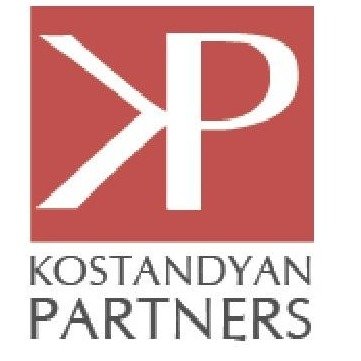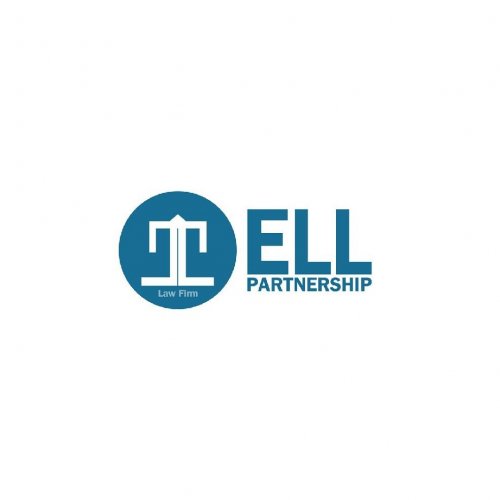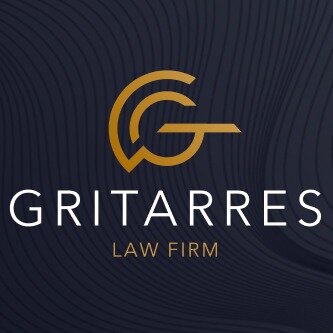Best Public-Private Partnerships (PPP) Lawyers in Yerevan
Share your needs with us, get contacted by law firms.
Free. Takes 2 min.
List of the best lawyers in Yerevan, Armenia
About Public-Private Partnerships (PPP) Law in Yerevan, Armenia
Public-Private Partnerships (PPP) are collaborative arrangements between government bodies and private sector entities for the provision of public services or development of infrastructure. In Yerevan, Armenia, PPPs are increasingly used to develop critical infrastructure projects such as transportation, utilities, and social infrastructure. The concept aims to leverage private sector investment, expertise, and management efficiencies while delivering essential public services. The legal framework governing PPPs in Armenia aims to create transparent, mutually beneficial relationships that distribute project risks and rewards appropriately between public and private partners.
Why You May Need a Lawyer
Engaging in a PPP project in Yerevan can be complex, given the intersection of public administration and private enterprise. You may need a lawyer for the following reasons:
- Interpreting complex PPP legislation and compliance requirements
- Drafting or reviewing PPP contracts and concession agreements
- Negotiating with governmental authorities and private investors
- Assessing and allocating project risks
- Handling disputes that arise during project implementation
- Navigating public procurement procedures
- Understanding tax, licensing, and permitting obligations
- Protecting intellectual property and proprietary technologies used in the project
- Advising on financing options and securities
- Representing clients in court or arbitration if conflicts occur
Local Laws Overview
In Armenia, PPPs are primarily regulated by the Law on Public-Private Partnerships, which was enacted to create a standardized and transparent process for PPP project initiation, selection, and execution. Key aspects of the local laws relevant to PPPs in Yerevan include:
- The requirement for open and competitive selection of private partners through public tenders
- Clear guidelines on risk allocation and financial responsibilities between parties
- Regulations on unsolicited proposals, enabling private entities to propose new projects for government consideration
- Mandatory feasibility studies and value-for-money analyses before project approval
- Provisions for government support, such as guarantees or subsidies, under special conditions
- Specific rules for the use and transfer of assets during and after the concession period
- Options for dispute resolution including Armenian courts or arbitration
- Procedures for monitoring and supervising PPP project implementation and compliance
- Transparency requirements, including public disclosure of key contractual terms
- Compatibility with Anti-Corruption and Competition Laws of Armenia, ensuring fair practice
Frequently Asked Questions
What is a PPP in the context of Armenia?
A PPP is a formal partnership between a public sector authority and a private sector entity to deliver infrastructure projects or public services, sharing risks and rewards.
Who can participate in a PPP project?
Both Armenian and foreign private sector companies can participate in PPP projects, subject to eligibility and qualification requirements set by the applicable law and tender documents.
How are PPP projects typically initiated in Yerevan?
PPP projects can be initiated by government agencies through public tenders or by private companies submitting unsolicited proposals that demonstrate public benefit.
What sectors are most commonly targeted for PPP projects in Armenia?
Typical sectors include transport infrastructure, energy, water supply, waste management, healthcare, and education.
What is required for a PPP proposal to be considered?
A successful proposal generally requires a feasibility study, value-for-money analysis, demonstration of technical and financial capability, and compliance with local regulations.
How is risk allocated in PPP agreements?
The law encourages the allocation of risks to the party best able to manage them, commonly splitting risks related to construction, financing, operation, and demand between the partners.
What are the standard steps for tendering a PPP contract?
The typical steps include project identification, feasibility analysis, public tender announcement, bid evaluation, contract negotiation, and signing, followed by project implementation and monitoring.
How are disputes in PPP projects resolved?
Disputes may be resolved through negotiation, Armenian courts, or alternative dispute resolution mechanisms such as arbitration, as stipulated in the PPP contract.
Are there any restrictions on foreign private partners?
While foreign companies can participate, they must meet eligibility requirements and observe legal provisions regarding land, investment, and sector-specific limitations.
What role do local municipalities play in PPPs?
Local municipalities in Yerevan may initiate, approve, and oversee PPPs related to municipal services or infrastructure, and they may partner with private entities under national and municipal PPP policies.
Additional Resources
If you need more information or assistance regarding PPPs in Yerevan, consider contacting the following organizations and government bodies:
- Ministry of Economy of Armenia - Department of PPPs
- Yerevan Municipality - Infrastructure Development Initiatives Unit
- Investment Support Center of Armenia
- Chamber of Commerce and Industry of Armenia
- International Finance Corporation (IFC) Armenia Office
- Local Armenian law firms specializing in PPP advisement
Next Steps
If you are considering involvement in a PPP project or facing legal questions about an existing partnership in Yerevan, Armenia, do the following:
- Gather all relevant project documentation, contracts, and correspondence
- Consult with a lawyer experienced in Armenian PPP law as early as possible in the process
- Identify the type and scope of legal services you require such as contract review, negotiation support, or dispute resolution
- Contact relevant government bodies or business associations for additional guidance
- Prepare a list of questions and concerns to discuss with your legal advisor
A qualified lawyer can help you navigate the legal and procedural aspects of PPPs, ensure compliance with Armenian law, and protect your interests throughout your partnership.
Lawzana helps you find the best lawyers and law firms in Yerevan through a curated and pre-screened list of qualified legal professionals. Our platform offers rankings and detailed profiles of attorneys and law firms, allowing you to compare based on practice areas, including Public-Private Partnerships (PPP), experience, and client feedback.
Each profile includes a description of the firm's areas of practice, client reviews, team members and partners, year of establishment, spoken languages, office locations, contact information, social media presence, and any published articles or resources. Most firms on our platform speak English and are experienced in both local and international legal matters.
Get a quote from top-rated law firms in Yerevan, Armenia — quickly, securely, and without unnecessary hassle.
Disclaimer:
The information provided on this page is for general informational purposes only and does not constitute legal advice. While we strive to ensure the accuracy and relevance of the content, legal information may change over time, and interpretations of the law can vary. You should always consult with a qualified legal professional for advice specific to your situation.
We disclaim all liability for actions taken or not taken based on the content of this page. If you believe any information is incorrect or outdated, please contact us, and we will review and update it where appropriate.

















